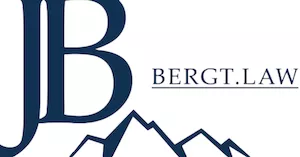- within Tax topic(s)
- within Tax topic(s)
- within Law Practice Management topic(s)
- with readers working within the Utilities industries
Hardly any other micro-jurisdiction has displayed a comparable legislative velocity in the field of international tax cooperation as the Principality of Liechtenstein which, after having anchored the Common Reporting Standard (“CRS”) almost a decade ago, is now—by means of Government Bill No. 48/2025—poised to transpose, in one single legislative motion, both the OECD's brand-new Crypto-Asset Reporting Framework (“CARF”) Multilateral Competent Authority Agreement and the 2023 overhaul of the CRS via a dedicated Addendum, thereby signalling to virtual-asset service providers (“VASPs”), deposit-taking banks, asset managers and even non-financial family structures that the era of unreported wallet balances and opaque token swaps is definitively drawing to a close.
1. From political pledge to hard-law mandate
Following a public Joint Statement of November 2023, in which more than forty jurisdictions—including Liechtenstein—committed to launch CARF and the revamped CRS by 1 January 2026, Vaduz formally declared to the Global Forum that its first crypto-asset data exchange would occur in 2027; the CARF MCAA itself was signed on 26 November 2024 alongside fifty other states. While the timeline may appear generous, the preparatory compliance work—client re-classification, data-pipeline engineering, XML-schema readiness—must be finalised well before the inaugural reporting window closes.
2. Legal scaffolding and reciprocity mechanics
The CARF MCAA and the CRS Addendum rest on the Council of Europe/OECD Multilateral Convention on Mutual Administrative Assistance in Tax Matters (“MAK”), with domestic effect guaranteed through a forthcoming CARF Act and an AIA-Act revision scheduled to enter into force on 1 February 2026. Reciprocity is the default setting, yet each competent authority must file an explicit notification confirming (i) technological readiness, (ii) reciprocal intent and (iii) the preferred transmission channel—Liechtenstein will, unsurprisingly, stick to the OECD Common Transmission System (“CTS”).
3. Scope: tokens, wallets and beyond
Whereas the classic CRS focuses on financial accounts, the CARF targets “relevant crypto-assets,” expressly excluding only digital central-bank currencies and narrow e-money products, with VASPs obliged to capture gross inflows and outflows, peer-to-peer transfers and—even more intrusively—mass-payment transactions above USD 50 000 in crypto equivalent. Parallelly, the CRS Addendum drags e-money tokens and CBDCs into reportable territory and heightens due-diligence thresholds, including mandatory flagging of whether a valid self-certification has actually been obtained.
4. Timing and periodicity
The first information package for a given calendar year must be dispatched within nine months after year-end, a “minimum standard” that ambitious Class A VASPs may anticipate if they seek supervisory goodwill or wish to evidence best practice vis-à-vis foreign partners.
5. Enforcement, confidentiality and the nuclear option
Non-compliance is not treated lightly: persistent breaches of confidentiality or data-quality obligations constitute “significant non-compliance” and empower any counterparty state to suspend exchanges with immediate effect, all previously received files remaining subject to strict secrecy nonetheless. For Liechtenstein entities, that translates into a double exposure—regulatory sanction by the FMA at home and sudden information cutoff abroad, potentially undermining passporting strategies.
6. Strategic implications for market actors
- VASPs must integrate CARF fields—e.g., transaction counts, market values, wallet-to-wallet transfers—into their ledger architecture, something most core-banking systems are not yet natively equipped to perform.
- Private banks and fiduciaries need to revisit high-net-worth client structures that currently park liquidity in stablecoin wrappers, as those may fall outside the e-money safe harbour.
- Family offices operating tokenised SPVs will be re-classified as “active” or “passive” entities under the revised CRS tests, with controlling persons reportable under the new “role” taxonomy.
Sources: Report And Motion Concerning THE MULTILATERAL AGREEMENT BETWEEN COMPETENT AUTHORITIES ON THE AUTOMATIC EXCHANGE OF INFORMATION UNDER THE REPORTING FRAMEWORK FOR CRYPTO ASSETS (CARF MCAA) AND THE ADDENDUM TO THE MULTILATERAL AGREEMENT BETWEEN COMPETENT AUTHORITIES ON THE AUTOMATIC EXCHANGE OF INFORMATION IN RELATION TO FINANCIAL ACCOUNTS (ADDENDUM CRS MCAA), No. 48/2025.
Key Findings & Core Statements
- Liechtenstein will implement CARF and the 2023 CRS revise simultaneously on 1 February 2026, with the first crypto data exchange slated for 2027.
- CARF obligations apply to any Liechtenstein-resident VASP and extend to branch operations abroad, unless equivalent reporting occurs in the host state.
- Reporting must be filed within nine months after year-end and transmitted via the OECD CTS.
- Digital Central-Bank Currency and narrowly defined e-money tokens are exempt; most stablecoins and NFTs are not.
- Suspension or termination clauses activate upon material breach of confidentiality or failure to supply data, exposing firms to sudden reputational and operational shocks.
Bergt Law stands at the forefront of crypto-asset regulation and regulatory compliance; our multidisciplinary team assists VASPs/CASPs, banks and sophisticated investors in mapping token flows to the forthcoming CARF schema, drafting robust self-certification frameworks and negotiating bilateral safe-harbour rulings.
The content of this article is intended to provide a general guide to the subject matter. Specialist advice should be sought about your specific circumstances.


